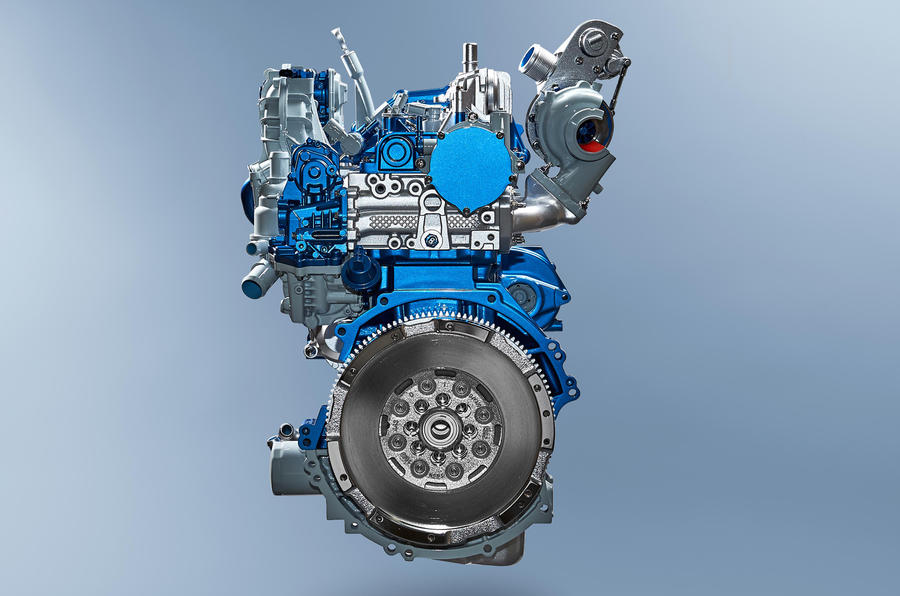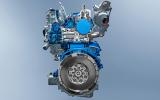Ford has revealed a new 2.0-litre ‘EcoBlue’ diesel engine, which will replace the current 2.2 TDCi unit. The EcoBlue is designed to pre-empt Euro 6 regulations that will come into effect in September.
Following the introduction of the 2.0-litre engine, a 1.5-litre version will be added to the line-up for use in entry-level versions of Ford models such as the Mondeo, Focus, C-Max, B-Max and Fiesta.
The EcoBlue engine comes in six different states of tune: 98bhp, 104bhp, 128bhp and 168bhp, as well as 197bhp and 237bhp versions that will most likely appear in performance-focused models such as the diesel variant of the Focus ST. Ford also claims that 20% more torque is available from as low as 1250rpm over the 2.2 TDCi powerplant the EcoBlue replaces.
Ford claims the new engine weighs 10-15kg less than the TDCi engine. These developments also allow the EcoBlue motor to take up less space.
Transit vans will be the first to get the new EcoBlue engine, before it makes its way into the larger cars in Ford’s range, such as the Ford Mondeo, Ford S-Max and Ford Galaxy, as well as potentially the upcoming Edge SUV and commercially orientated Ford Ranger and Tourneo models.
In the Transit, Ford claims to have improved emissions by more than 10% with the new engine, as well as improving fuel economy by 13%.
The brand claims that the turbocharged EcoBlue engines, which were developed in the UK and Germany, will be an "unrivalled package of fuel efficiency, performance and refinement".









Join the debate
Add your comment
Solution
A number of things
Europeans who want to continue driving into city centers may want to consider petrol. A second car where previously one sufficed is not green.
Of course diesels are popular for commercial traffic, but then no one drives articulated lorries for pleasure, which is why they are ripe for autonomy.
I think one of the reasons why Ford disappoints with real world fuel economy on their turbocharged engines is fuel being used to cool the charge. Read about the engine in the new Mazda CX-9 for a way around that.
Contrary to WtW's comment, I love creative solutions to inexpensive family driving, which is why, after decades, the best car I ever owned was a Citroën GS.
Pipeline